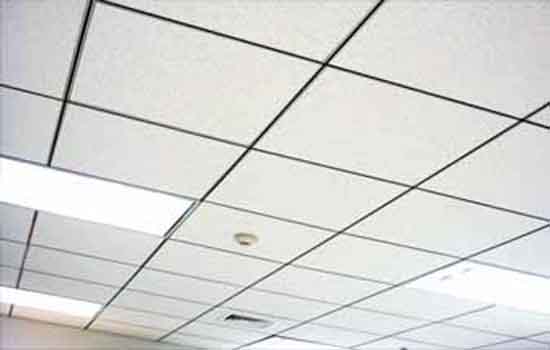Mineral Fiber Ceiling Tiles: Manufacturing
Introduction
Mineral fiber ceiling tiles have gained prominence in the construction and renovation sectors due to their exceptional acoustic properties, fire resistance, and aesthetic flexibility. These tiles, often utilized in commercial and residential spaces, are manufactured using a process that combines mineral fibers with various additives to create a versatile and high-performance ceiling solution. This article delves into the manufacturing process, advantages, and industry trends surrounding mineral fiber ceiling tiles.
Manufacturing Process
The production of mineral fiber ceiling tiles involves several key steps, each contributing to the final product's durability, performance, and aesthetic quality.
-
Raw Material Preparation The primary raw materials used in the manufacture of mineral fiber ceiling tiles include natural minerals such as gypsum, perlite, and vermiculite, as well as synthetic fibers like glass wool or mineral wool. These materials are selected for their fire-resistant properties, acoustic absorption capabilities, and structural integrity. The raw materials are crushed and ground to a fine powder to ensure a uniform mixture.
-
Formulation and Mixing The ground minerals and fibers are mixed with water and various additives to enhance the tile's properties. Additives such as binders, fillers, and colorants are included to achieve desired characteristics like improved fire resistance, acoustic performance, and aesthetic appeal. The mixture is thoroughly blended to create a homogeneous slurry.
-
Molding and Shaping The slurry is poured into molds to form the tiles. Depending on the desired tile size and shape, the molds may vary. The slurry is spread evenly within the molds to ensure consistent thickness and density. The molding process can involve either a continuous or batch process, depending on the manufacturing scale.
-
Curing and Drying After molding, the tiles are subjected to a curing process to strengthen their structure. Curing typically involves heating the tiles in a controlled environment to accelerate the hardening of the binder and other additives. Once cured, the tiles are dried to remove excess moisture, which can be achieved through various methods such as convection or infrared drying.
-
Finishing and Quality Control After drying, the tiles undergo finishing processes to achieve the desired surface texture and appearance. This can include sanding, coating, or texturing. Quality control measures are implemented at various stages of production to ensure that the tiles meet industry standards for durability, acoustic performance, and fire resistance. Tests are conducted for parameters such as sound absorption, thermal insulation, and fire rating.
Advantages of Mineral Fiber Ceiling Tiles
-
Acoustic Performance Mineral fiber ceiling tiles are renowned for their superior acoustic properties. The porous structure of mineral fibers allows them to absorb sound effectively, reducing noise levels and enhancing acoustic comfort in various environments, including offices, schools, and healthcare facilities.
-
Fire Resistance One of the primary benefits of mineral fiber ceiling tiles is their fire resistance. The mineral content in the tiles provides inherent fireproofing capabilities, making them suitable for applications where fire safety is a critical concern. They can help prevent the spread of flames and smoke, contributing to overall building safety.
-
Thermal Insulation Mineral fiber tiles offer good thermal insulation properties, helping to maintain consistent indoor temperatures. This insulation capability can contribute to energy efficiency by reducing the need for additional heating or cooling, thus lowering overall energy costs.
-
Aesthetic Flexibility Mineral fiber ceiling tiles are available in a variety of designs, colors, and textures, providing aesthetic flexibility for different interior styles. Whether aiming for a sleek, modern look or a more traditional appearance, these tiles can be customized to meet design preferences.
-
Ease of Installation and Maintenance The lightweight nature of mineral fiber tiles simplifies the installation process. They can be easily suspended from a ceiling grid system, allowing for quick and efficient installation. Additionally, these tiles are relatively easy to maintain, with many options available for cleaning and replacing individual tiles if necessary.
Industry Trends and Innovations
The mineral fiber ceiling tile industry is evolving with advancements in technology and changing market demands. Key trends include:
-
Sustainability There is a growing emphasis on sustainable manufacturing practices and the use of eco-friendly materials in the production of mineral fiber ceiling tiles. Manufacturers are exploring ways to reduce waste, lower energy consumption, and incorporate recycled materials into their products.
-
Enhanced Acoustic Solutions Innovations in material science are leading to improved acoustic performance in mineral fiber tiles. New formulations and designs are being developed to address specific acoustic challenges and enhance sound absorption in various environments.
-
Design Innovations The demand for aesthetically pleasing and customizable ceiling solutions is driving innovation in tile designs. Manufacturers are exploring new patterns, textures, and finishes to offer a wider range of design options that cater to contemporary architectural trends.
-
Smart Ceilings The integration of smart technologies into ceiling systems is an emerging trend. Mineral fiber ceiling tiles with embedded sensors and lighting controls are being developed to enhance functionality and create more interactive and responsive interior environments.
Conclusion
Mineral fiber ceiling tiles continue to be a popular choice in the construction industry due to their exceptional performance characteristics and aesthetic versatility. The manufacturing process involves careful selection of raw materials, precise formulation, and rigorous quality control to ensure a high-quality product. As the industry evolves, innovations in sustainability, acoustic solutions, and design are shaping the future of mineral fiber ceiling tiles, offering even greater benefits and possibilities for both residential and commercial spaces.

